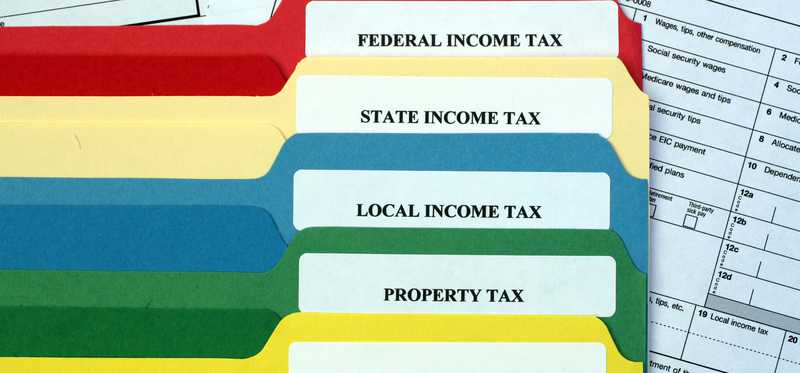9 Things No One Tells You About Social Security

9 Things No One Tells You About Social Security
What you don't know can hurt you
Millions of seniors depend on Social Security to pay the bills in retirement, but there’s a lot of mystery surrounding the program and how it works. The problem with being kept in the dark, however, is that you stand to lose out on benefits -- benefits that could come in handy when you’re older and money grows tight. With that in mind, here are a few lesser-known facts about Social Security that can help you better navigate the program’s ins and outs.
Previous
Next

1. You can get a do-over if you file too early
The problem with claiming Social Security ahead of full retirement age is reducing your benefits, and potentially doing so for life. That said, Social Security does allow you a do-over if you find that you’ve filed too early. All you need to do is withdraw your benefits application within a year of filing and repay all of the money you collected back to the Social Security Administration.
Previous
Next

2. You can collect benefits even if you never worked
Generally, you need to earn enough lifetime work credits to be eligible for Social Security when you’re older. But if you’re married, or were married, to someone who’s entitled to benefits, you might get some money out of the program as well, even if you never worked a day in your life. Thanks to Social Security’s spousal benefits feature, you may be allowed to collect up to 50% of what your spouse or former spouse is entitled to at his or her full retirement age.
Previous
Next

3. Your benefits might be subject to federal taxes
Retirees who don’t have much income outside of Social Security can often avoid taxes on their benefits. But if you have additional income sources, like savings or investments, you might find that a large portion of your benefits is subject to taxes. To see if your benefits will be taxed, you’ll need to calculate what’s known as your provisional income, which is essentially your non-Social Security income plus half of your annual benefits. If your total falls between $25,000 and $34,000 as a single tax filer, or between $32,000 and $44,000 as a couple filing taxes jointly, then you could be taxed on up to 50% of your benefits. And if your provisional income exceeds $34,000 as a single filer or $44,000 as a couple filing jointly, you could be taxed on up to 85% of your benefits.
Previous
Next

4. Your home state might tax your benefits, too
Even if you’re not subject to taxes on Social Security at the federal level, there are 13 states that tax benefits to varying degrees: Colorado, Connecticut, Kansas, Minnesota, Missouri, Montana, Nebraska, New Mexico, North Dakota, Rhode Island, Utah, Vermont, and West Virginia. Most of these states, however, offer some type of exemption that allows you to avoid taxation on benefits as long as you’re not a particularly high earner.
Previous
Next

5. If you’re self-employed, your payroll taxes are doubled
Social Security gets its funding from payroll taxes, and currently, your first $128,400 of earnings are subject to a 12.4% tax. (In 2019, that earnings cap will climb to $132,900). Now if you’re a salaried worker, you’ll only be responsible for 6.2% of that $128,400 (or $132,900 next year), because your employer will pick up the other half of the tab. But if you’re self-employed, you’re liable for the entire 12.4% tax. That said, you’ll get to deduct half of it when you file your tax return.
Previous
Next

6. You can collect benefits even when living outside the U.S.
Many retirees spend a fair amount of time traveling abroad. The good news from a Social Security standpoint is that generally speaking, you can continue collecting your benefits overseas as long as you fulfill certain requirements. That said, there are some countries to which the U.S. cannot send payments, so contact the Social Security Administration if you're planning to be outside the U.S. for 30 days or more.
Previous
Next

7. The program can’t go broke
Because Social Security is facing some financial challenges, many workers and recipients alike worry that the program is on the verge of bankruptcy. But that’s not true. In fact, Social Security can’t go broke because, as we just learned, it gets its funding from payroll taxes, so as long as we have an active workforce, the program can collect revenue and use it to pay benefits. That said, there’s a chance future benefits could be reduced once Social Security’s trust funds run out, unless Congress is able to intervene with a suitable fix.
Previous
Next

8. Your benefits won’t become available the moment you file
Getting access to your Social Security income isn’t an overnight process. Rather, it takes time to verify your benefits application, so rather than run into a situation where you’re short on cash, file for benefits a few months prior to when you actually want those payments to start. Some folks even advise filing up to four months in advance of when you wish to start receiving benefits.
Previous
Next

9. It’s designed to pay the same total lifetime benefit regardless of when you first file
Filing for Social Security before reaching full retirement age can cause your monthly benefits to drop, while delaying benefits past full retirement age can cause them to increase. That said, if you end up living an average lifespan, it probably won’t matter when you initially file. The reason is that Social Security is designed to pay you roughly the same lifetime total regardless of when you first claim benefits. The logic is that if you live as long as the average senior, any reduction in benefits you face by filing early will be offset by the larger number of individual payments you collect, and vice versa -- filing later will boost each payment you get, but you’ll also collect fewer payments in your lifetime.
The Motley Fool has a disclosure policy.
Previous
Next
Invest Smarter with The Motley Fool
Join Over Half a Million Premium Members Receiving…
- New Stock Picks Each Month
- Detailed Analysis of Companies
- Model Portfolios
- Live Streaming During Market Hours
- And Much More
READ MORE
HOW THE MOTLEY FOOL CAN HELP YOU
-
Premium Investing Guidance
Market beating stocks from our award-winning service
-
The Daily Upside Newsletter
Investment news and high-quality insights delivered straight to your inbox
-
Get Started Investing
You can do it. Successful investing in just a few steps
-
Win at Retirement
Secrets and strategies for the post-work life you want.
-
Find a Broker
Find the right brokerage account for you.
-
Listen to our Podcasts
Hear our experts take on stocks, the market, and how to invest.
Premium Investing Services
Invest better with The Motley Fool. Get stock recommendations, portfolio guidance, and more from The Motley Fool's premium services.